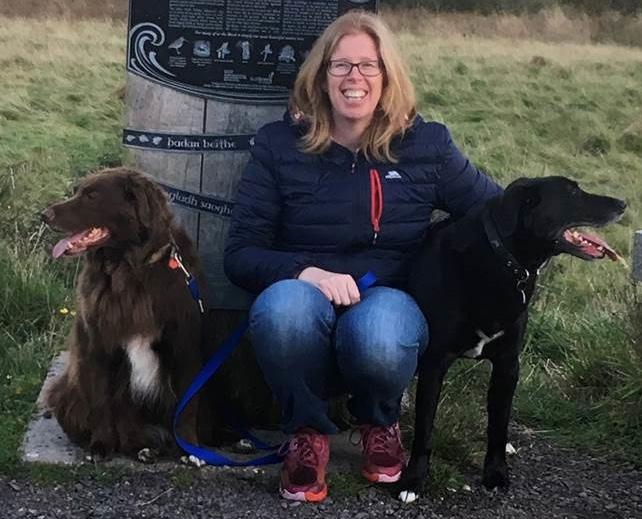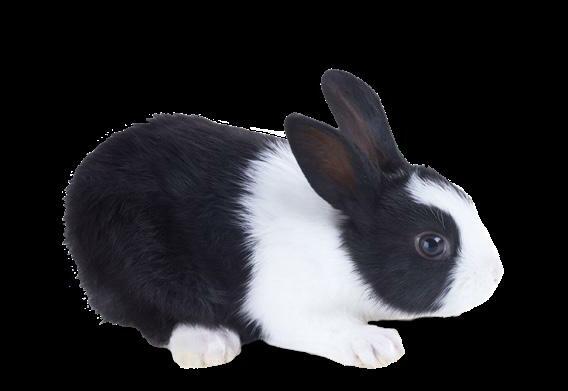
4 minute read
Q&A WITH SUSAN WITTON
ANIMAL GUARDIANS
Animal Guardians is our pioneering scheme for young people who have or are showing behaviour towards animals that is a cause of concern leading to the animal being hurt or the young person becoming injured. We caught up with youth engagement officer, Susan Witton, to learn more about her work.
Advertisement
1. When did the Animal Guardians programme start and why was it created? 2. What is the process for a young person to enter the Animal Guardians programme?
Initially piloted in Edinburgh and the Lothians in May 2018, and is the brainchild of chief superintendent Mike Flynn and head of innovation and strategic relations Gilly Mendes Ferreira.
It follows on from the First Strike programme that Mike was involved in way back in 1998 that highlighted the link between domestic abuse and animal cruelty.
Animal Guardians is a free education programme that nurtures empathy and compassionate behaviour toward animals for young people of primary school age who may be at risk of, or indeed, have harmed animals. Due to the high demand for the programme there is now a team of four youth engagement officers that work with young people between the age of three and 16 across the majority of Scotland. We work with young people on a one-to-one basis across the course of approximately 10 weeks, teaching them about animal emotions, their needs and how to behave responsibly around all animals. Referrals for Animal Guardians can be made from any adult that is directly involved in the care of a young person. This can be parents or carers, teachers or social workers, health professionals or police officers, and many other professionals from the charity sector and beyond.
3. What sort of issues do you help young people deal with?
Young people can be referred on to the programme for a myriad of reasons including intentional cruelty, unintentional cruelty, rough handling, over loving or even witnessing animal abuse in the family home.
4. Have you seen a change in the sort of problems young people are facing since lockdown?
Although, unsurprisingly, we have become a lot busier since lockdown, the reasons for referral onto the programme have remained varied with each young person having their own specific reasons for needing our support. Over 90% of the young people that have taken part in the Animal Guardians programme have an additional support need or have suffered trauma, sometimes known as ACE’s (Adverse Childhood Experiences).
5.What sort of activities do young people take part in as part of the Animal Guardians programme? 6. How successful is the Animal Guardians programme?
To date we have had over 280 referrals to the programme and have seen a steady increase in the demand for the programme. We have received wonderful feedback from referring parents and carers and formed strong partnerships with referring organisations.
It is vitally important that what we do is making a positive difference, so right from the initial development of the programme we have worked very closely with the Clinical and Health Psychology department at The University of Edinburgh who have been evaluating our work. We look forward to sharing these findings with you in the coming months.
7. What advice do you have for parents, carers or teachers to help ensure young people treat animals with kindness?
It is extremely important that the programme is a positive experience for all of the young people that take part in it. All of the activities are game based and we try to ensure that whilst we are educating them about animal emotions, that the young person experiences positive emotions too.
We have over 15 games that cover the three topics (emotions, needs and responsibilities), therefore allowing us to adapt to different learning styles and academic abilities. The final part of the programme, if considered appropriate, is when the young people have the opportunity to visit their local animal rescue and rehoming centre to meet animals in our care. Here they are able to demonstrate what they have learnt by observing and talking about the animals that they are introduced to. This is usually the most enjoyable part of the programme for the young people we work with. Talk to children everyday about all the amazing animals that are part of their lives, from spiders and squirrels to cats and capercaillies.

Animals share our country with us and they share the same emotions as us. They feel fear, pain and sadness but most of all we want them to share happiness with us. Treat all animals with the care and kindness they would like to receive, and of course, always call the Scottish SPCA if they see an animal that needs help.
8.What is the most rewarding part of your job?
Every day is unique and rewarding in this job. Having the opportunity to work with young people and teach them about the benefits of having positive relationships with animals. Showing them how valuable animals are and how they can help to make sure that the animals they come in contact with are happy and healthy. Then finally when they teach others about the importance of treating animals with kindness it completes the journey.
If you, or anyone you know, has concerns about a young person’s behaviour towards animals you can find out more and download our referral forms here: scottishspca.org/animal-guardians










